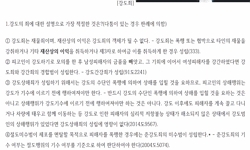이 논문은 법과 정의에 관한 문제가 객관성, 보편성뿐만 아니라 개인의 경험, 감정, 상황, 맥락을 중요하게 고려하는 속에서 이루어져야 한다는 전제에 입각한다. 일반적으로 정의는 법과 일...
http://chineseinput.net/에서 pinyin(병음)방식으로 중국어를 변환할 수 있습니다.
변환된 중국어를 복사하여 사용하시면 됩니다.
- 中文 을 입력하시려면 zhongwen을 입력하시고 space를누르시면됩니다.
- 北京 을 입력하시려면 beijing을 입력하시고 space를 누르시면 됩니다.

조선여성의 법-감정 서사를 통해 본 ‘법 너머의 정의’ 담론 : 김씨 부인 <상언>의 ‘이봉상 사건’ 이해를 중심으로 = Discourse of ‘Justice Beyond the Law’ Through the Law-emotional Narrative of Woman in Joseon Dynasty : Focusing on Understanding ‘The Case of Lee Bong-Sang’ Through Sang-Eon(上言) Authored by Mrs. Kim
한글로보기부가정보
국문 초록 (Abstract)
논문에서는 이 같은 내용을 조선 후기 ‘이봉상 사건’을 이해하는 김씨 부인의 <상언>과 이익명의 상소 및 조선왕조실록에 기록된 조정신료의 입장들을 분석하는 속에서 살펴본다. 조선시대 법과 정의의 문제가 감정을 도외시하지 않았다는 사실에 주목하면서, 그러나 개별 주체가 처한 맥락과 젠더정체성에 따라 그 결이 어떻게 달랐는지를 동일한 사건을 이해하는 여러 시선들을 붙여 읽는 속에서 생각해본다. 그리하여 김씨 부인의 <상언>이 갖는 특징, 즉 사건 발생의 상황과 맥락, 감정, 경험을 중시하는 맥락추론의 관점, 친족의 입장을 대변하지만 공/사 이분법을 흔드는 지점의 의미와 효과를 드러낸다.
이렇게 논의를 함으로써 조선 시대의 법과 정의의 관계에 대한 이해, 특히 조선여성의 법-감정 서사가 보여주는 특징을 강조한다. 조선여성의 법-감정 서사가 보여주는, 다양한 논증을 구사하는 장면들을 드러내고, 이를 통해 조선 여성들의 발언이 산출하는 의미와 효과를 살펴보는 것이다. 조선여성의 법과 정의에 대한 이해의 특징을 통해 정의의 문제가 단지 죄와 벌, 옳고 그름의 판단 차원에 머무는 것이 아니라 타자에 대한 인정, 공감의 차원을 반영하는 것이어야 한다는 주장의 근거를 확보한다.
이 논문은 법과 정의에 관한 문제가 객관성, 보편성뿐만 아니라 개인의 경험, 감정, 상황, 맥락을 중요하게 고려하는 속에서 이루어져야 한다는 전제에 입각한다. 일반적으로 정의는 법과 일치하는 것이며 이때 법과 정의 담론에는 감정이 관여될 수 없다고 이해된다. 그러나 법과 정의에 감정이 관여할 수 있다는 주장이 많은 논란을 불러일으킴에도 불구하고, 감정, 경험, 상황, 맥락이 관여되지 않을때 정의는 온전히 실현되기 어렵다. 객관성, 보편성에만 의거하다보면 자칫 개별적인 특수성을 무시하고 결국 공정성으로서의 정의 개념에 온전히 다가설 수 없기 때문이다.
논문에서는 이 같은 내용을 조선 후기 ‘이봉상 사건’을 이해하는 김씨 부인의 <상언>과 이익명의 상소 및 조선왕조실록에 기록된 조정신료의 입장들을 분석하는 속에서 살펴본다. 조선시대 법과 정의의 문제가 감정을 도외시하지 않았다는 사실에 주목하면서, 그러나 개별 주체가 처한 맥락과 젠더정체성에 따라 그 결이 어떻게 달랐는지를 동일한 사건을 이해하는 여러 시선들을 붙여 읽는 속에서 생각해본다. 그리하여 김씨 부인의 <상언>이 갖는 특징, 즉 사건 발생의 상황과 맥락, 감정, 경험을 중시하는 맥락추론의 관점, 친족의 입장을 대변하지만 공/사 이분법을 흔드는 지점의 의미와 효과를 드러낸다.
이렇게 논의를 함으로써 조선 시대의 법과 정의의 관계에 대한 이해, 특히 조선여성의 법-감정 서사가 보여주는 특징을 강조한다. 조선여성의 법-감정 서사가 보여주는, 다양한 논증을 구사하는 장면들을 드러내고, 이를 통해 조선 여성들의 발언이 산출하는 의미와 효과를 살펴보는 것이다. 조선여성의 법과 정의에 대한 이해의 특징을 통해 정의의 문제가 단지 죄와 벌, 옳고 그름의 판단 차원에 머무는 것이 아니라 타자에 대한 인정, 공감의 차원을 반영하는 것이어야 한다는 주장의 근거를 확보한다.
다국어 초록 (Multilingual Abstract)
This paper discusses these issues by paying attention to the way the ‘Lee Bong-Sang case’ is handled in Mrs. Kim’s Sang-Eon, and it is analyzed based on the difference between the appeals of Lee Ik-Myeong and the positions of the court credentials recorded in the Annals of the Joseon Dynasty. In addition, in reading with multiple perspectives that understand the same event, the paper reflects on the characteristics of Mrs. Kim’s Sang-Eon, namely the perspective of contextual-reasoning that emphasizes the situation, context, emotions, and experiences of the event, and the meaning and effect of the point at which it shakes the public/private dichotomy while supporting the position of the relatives.
By discussing in such matters, the paper reveals the scenes in which the legal-emotional narrative of Joseon women uses various arguments without being shallow, and through this, I provide a logical basis for reimagining the relationship between law, justice, and emotion. Thus, it is suggested that the issue of law and justice should not just remain in the dimension of judgment of sin, punishment, and right and wrong, but should be made through a method of recognition for others.
This paper examines the law-emotional narrative of Joseon Dynasty woman, recognizing that issues related to law and justice should be made in consideration of individual experiences, emotions, situations, and contexts. In general, the argument that em...
This paper examines the law-emotional narrative of Joseon Dynasty woman, recognizing that issues related to law and justice should be made in consideration of individual experiences, emotions, situations, and contexts. In general, the argument that emotions can be involved in law and justice is understood to be controversial, but justice is difficult to be fully realized when emotions, experiences, situations, and contexts are not engaged. This is because individual specificity is ignored when judgments are solely based on objectivity and universality, and in turn, this eventually cannot reach the concept of justice as fairness.
This paper discusses these issues by paying attention to the way the ‘Lee Bong-Sang case’ is handled in Mrs. Kim’s Sang-Eon, and it is analyzed based on the difference between the appeals of Lee Ik-Myeong and the positions of the court credentials recorded in the Annals of the Joseon Dynasty. In addition, in reading with multiple perspectives that understand the same event, the paper reflects on the characteristics of Mrs. Kim’s Sang-Eon, namely the perspective of contextual-reasoning that emphasizes the situation, context, emotions, and experiences of the event, and the meaning and effect of the point at which it shakes the public/private dichotomy while supporting the position of the relatives.
By discussing in such matters, the paper reveals the scenes in which the legal-emotional narrative of Joseon women uses various arguments without being shallow, and through this, I provide a logical basis for reimagining the relationship between law, justice, and emotion. Thus, it is suggested that the issue of law and justice should not just remain in the dimension of judgment of sin, punishment, and right and wrong, but should be made through a method of recognition for others.
동일학술지(권/호) 다른 논문
-
차이의 정치학으로서 에코페미니즘 : 우리나라 풀뿌리 운동의 사례
- 한국여성철학회
- 최형미
- 2024
- KCI등재
-
1990년대 페미니즘의 사상적 전환 : 다양성, 교차성, 그리고 문화적 성찰을 중심으로
- 한국여성철학회
- 신정원
- 2024
- KCI등재
-
1990년대 여성주의철학, 보살핌과 배려의 너머 : 콜버그에서 길리건으로, 길리건에서 트론토로 돌봄 윤리의 확장
- 한국여성철학회
- 이정은
- 2024
- KCI등재
-
- 한국여성철학회
- 이혜정
- 2024
- KCI등재




 KCI
KCI






